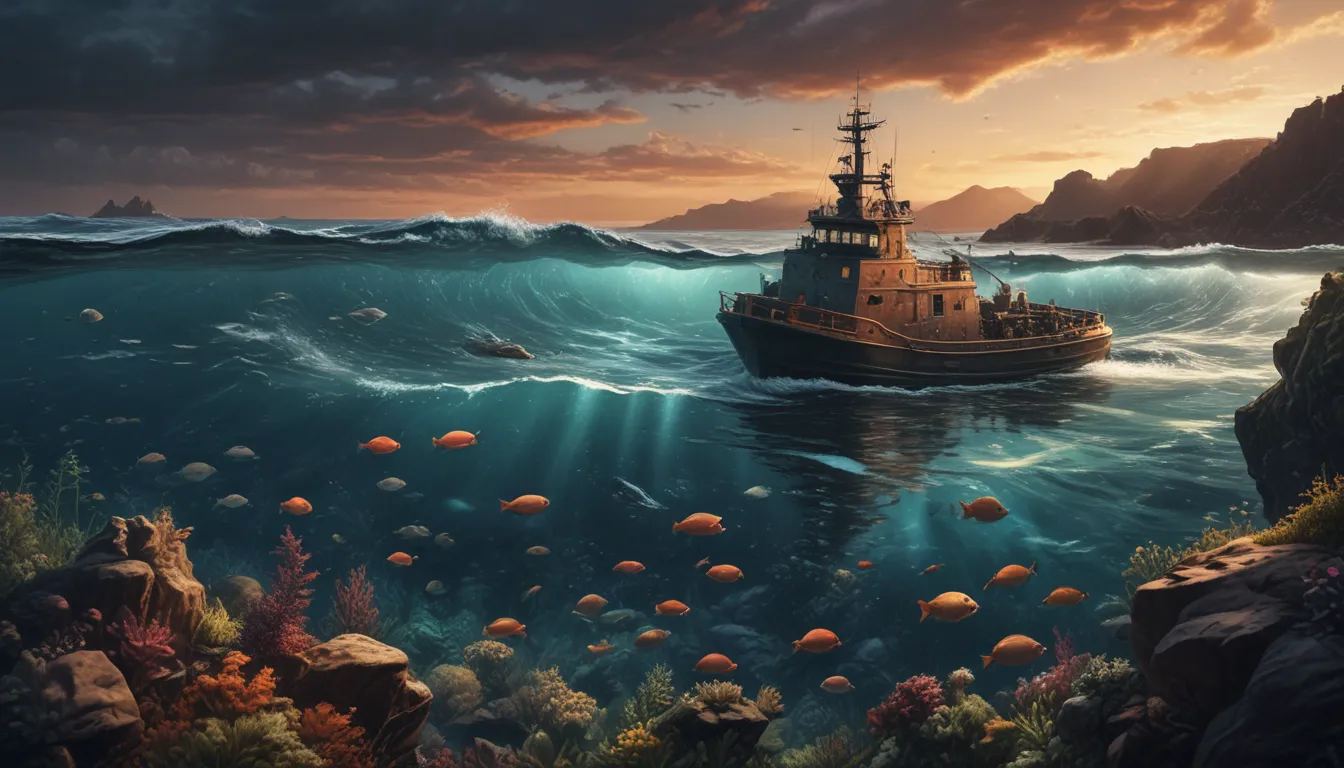A Note About Images: The images used in our articles are for illustration purposes only and may not exactly match the content. They are meant to engage readers, but the text should be relied upon for accurate information.
Welcome to the fascinating world of territorial waters, where countries assert their sovereignty and control over the oceans adjacent to their coastlines. In this comprehensive guide, we will delve into the intricate dynamics and significance of territorial waters, shedding light on their importance in international law, maritime affairs, and environmental conservation. Join us as we navigate through 19 intriguing facts about territorial waters, from their definition to historical claims and the impact of climate change.
Unlocking the Secrets of Territorial Waters
Territorial waters are like a country’s ocean backyard, where they have special rules and control. They’re super important for protecting resources and preventing conflicts between countries. Countries use special rules to decide how far their ocean territory goes. It can lead to disagreements, but also cooperation for sharing and protecting the ocean’s treasures.
The Definition and Jurisdiction of Territorial Waters
Territorial waters refer to the area of the ocean adjacent to a country’s coastline and are considered part of its sovereign territory. These waters extend up to 12 nautical miles from the baseline of a coastal state. In territorial waters, a country exercises full jurisdiction and control, including the right to enforce its laws, regulate navigation, and exploit natural resources within this area.
The Significance of Territorial Waters
Territorial waters hold immense strategic, economic, and environmental significance for coastal states. They serve as a buffer zone, protect national security, facilitate trade, and support the exploration and exploitation of marine resources. The United Nations Convention on the Law of the Sea (UNCLOS) establishes the legal framework for the rights and responsibilities of states in their use of the world’s oceans, including territorial waters.
Navigating Controversies Over Territorial Waters
Throughout history, territorial waters have been a source of disputes and conflicts between neighboring countries, often due to competing territorial claims, access to resources, or control over strategic waterways. Straight baselines are used to determine the extent of territorial waters in situations where a coastline is deeply indented or has a fringe of islands.
Delving into Legal Principles and Rights
Under international law, ships belonging to other states have the right of innocent passage through a country’s territorial waters, as long as they abide by the laws and regulations of the coastal state. Coastal states have the exclusive right to exploit and harvest the natural resources found within their territorial waters, including fishing, oil and gas reserves, and minerals.
Collaboration and Disputes in Maritime Affairs
Transit passage refers to the right of continuous and expeditious passage through straits used for international navigation. Some regions of the world, such as the South China Sea and the Arctic Ocean, are hotspots for maritime disputes, with multiple countries claiming overlapping territorial waters and rights to resources. Adjacent to territorial waters, countries may also have an Exclusive Economic Zone (EEZ) extending up to 200 nautical miles from the baseline, where they have special rights to explore and exploit natural resources.
Protecting the Marine Environment
Coastal states have the responsibility to protect and preserve the marine environment within their territorial waters. They must take measures to prevent pollution and ensure sustainable use of marine resources. Submerged features such as reefs or shoals can generate their own territorial waters under international law, even if they are not visible above the water’s surface.
Encountering Historical and Future Challenges
When neighboring countries have overlapping claims over territorial waters, the delimitation of boundaries is determined through negotiation, arbitration, or international adjudication. Some countries assert territorial waters beyond the standard 12-nautical-mile limit based on historical claims. Rising sea levels due to climate change pose a challenge to the definition and extent of territorial waters, particularly for low-lying coastal states.
Bridging Nations Through Cooperation
As maritime boundaries continue to be a topic of contention, the future of territorial waters will likely involve ongoing negotiations, legal disputes, and the need for sustainable management of marine resources. Coastal states often enter into bilateral and multilateral agreements, such as joint development zones or fisheries agreements, to manage and share resources in their respective territorial waters.
Exploring FAQs About Territorial Waters
-
What are territorial waters?
Territorial waters refer to the maritime zones adjacent to a country’s land territory that are subject to the jurisdiction of that particular nation. -
How far do territorial waters extend?
In general, territorial waters extend up to 12 nautical miles (22.2 kilometers) from a country’s coastline. -
What can a country do in its territorial waters?
A country exercises full sovereignty over its territorial waters, including the authority to enforce laws, regulate commerce, and exploit natural resources within this zone. -
Are territorial waters the same as international waters?
No, territorial waters are under the control of a specific country, whereas international waters, also known as the high seas, are beyond the jurisdiction of any nation. -
Are territorial waters subject to international law?
Yes, territorial waters are subject to international law, including the United Nations Convention on the Law of the Sea (UNCLOS), which provides a framework for the rights and responsibilities of states in their maritime zones. -
Can foreign ships navigate through a country’s territorial waters?
Foreign ships have the right of innocent passage through another country’s territorial waters as long as they do not pose a threat to the security or peace of the coastal state. -
Are territorial waters the same as exclusive economic zones (EEZ)?
No, exclusive economic zones are different from territorial waters. EEZs extend up to 200 nautical miles from a country’s coastline and grant the coastal state special rights over the exploration and exploitation of marine resources.
Conclusion
In conclusion, territorial waters are a captivating domain that shapes international relations, maritime affairs, and environmental conservation. Understanding the intricacies of territorial waters enhances our knowledge about the complexities of managing shared marine spaces. It is essential for nations to uphold the principles of international law and engage in peaceful resolution of disputes to maintain stability and order in our oceans. Join us in exploring the captivating world of territorial waters and their pivotal role in shaping the future of our oceans.
Was this page helpful?
Our commitment to delivering trustworthy and engaging content is at the heart of what we do. Each fact on our site is contributed by real users like you, bringing a wealth of diverse insights and information. Trust in our commitment to quality and authenticity as you explore and learn with us.






